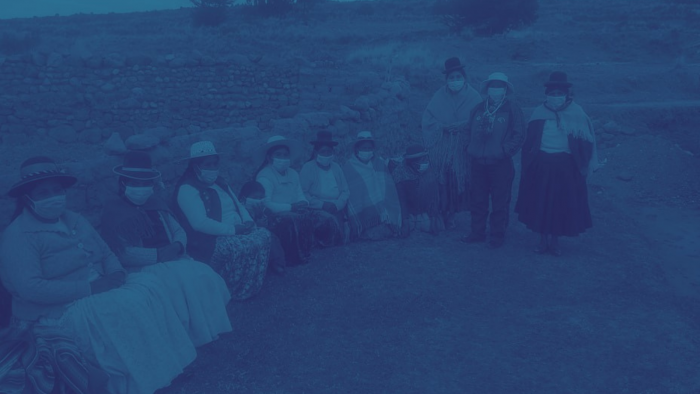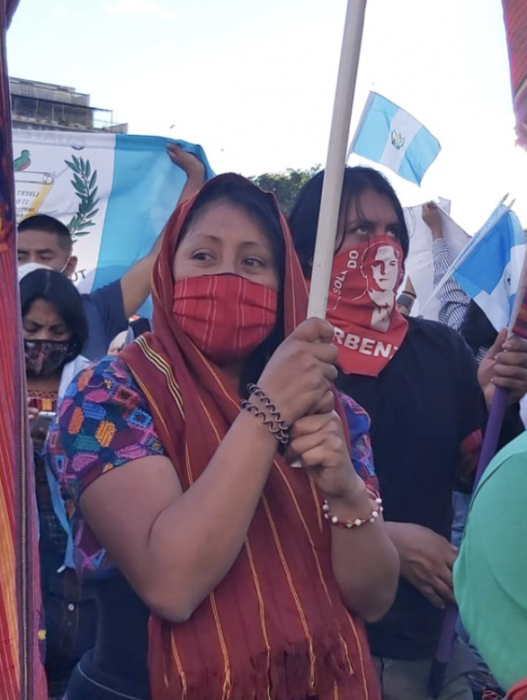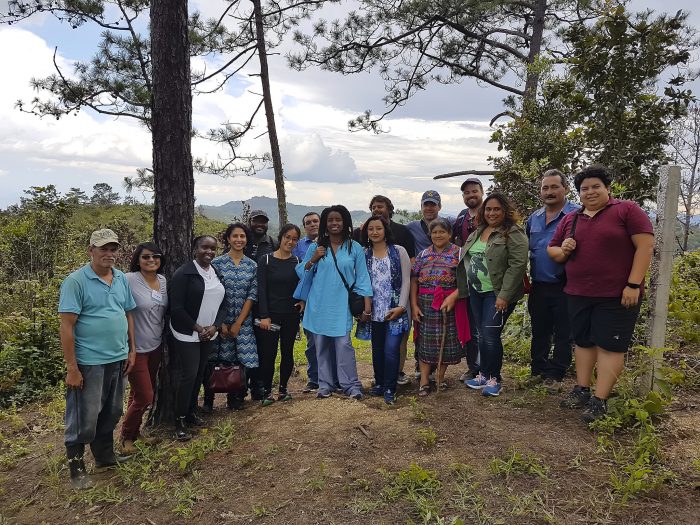Pushing the door to justice open
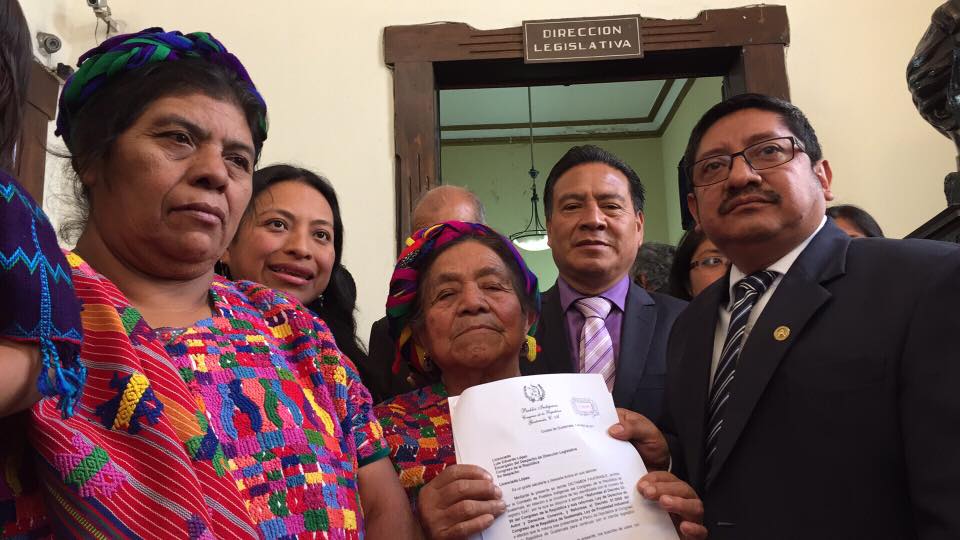
It’s legit.
A national legal campaign that was led by Indigenous women marching into the Constitutional Court of Guatemala has again ruled in their favor.
Following its verdict last year, the Court has now made its own demand of Guatemala’s Congress:
This cements the historic legislative decision last year and places el Movimiento Nacional de Tejedoras Mayas, or the National Movement of Mayan Weavers, one step closer to set binding legal precedence that could pave the way for Indigenous Peoples around the world to protect their collective rights to intellectual property for their work.
Angelina Aspuac, Advocacy Coordinator who leads this strategy, explains,
What led to this moment?
In 2015, partner Asociación Femenina para el Desarrollo de Sacatepéquez (AFEDES) in Guatemala shared with Thousand Currents its plans to implement an experimental legislative strategy to protect Mayan weavings. AFEDES had completed a community assessment process to identify the challenges Indigenous women faced to continue their tradition art of weaving and to build self-determined lives.
The findings didn’t provide a simple list, but instead provoked a systemic analysis of racism and discrimination. They found that throughout government institutions and the legal system, profits were ultimately favored at the costs of Indigenous peoples’ lives. Angelina shares,
After a series of reflections, AFEDES decided to attempt a strategy they had never tried before: file a lawsuit. A lawsuit would be presented in the frame of collective intellectual property rights. Angelina explains,
In 2016, AFEDES presented its lawsuit to the Constitutional Court. The Court asked AFEDES to bring forth its testimony at a public hearing on June 28th. This was an opportunity to mobilize and around 500 Mayan weavers traveled from the highlands to Guatemala City to support this case.
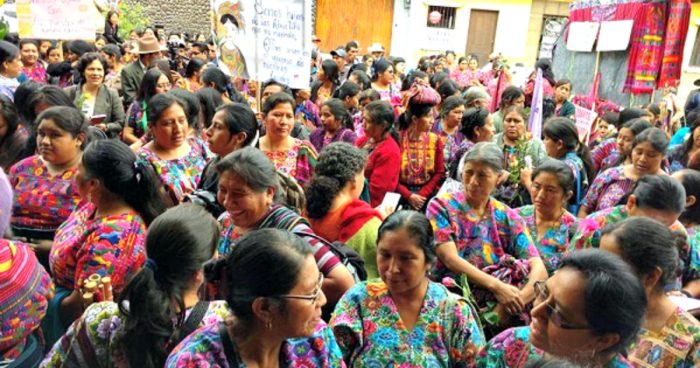
Indigenous women from across Guatemala gathered to hear the Constitutional Court testimony in June 2016.
Angelina explains the vitality of this movement,
The Constitutional Court accepted the testimonies and agreed to further investigate the validity of the case and whether there were repercussions for the government. It wasn’t a complete victory, but was still a win. There was still hope for what the verdict could be.
On October 30 of this year – sixteen months after the public hearing – the verdict is confirmed.
And now the Guatemala Congress has to act. Every step forward in a legal case counts, says Angelina,
Related Stories
